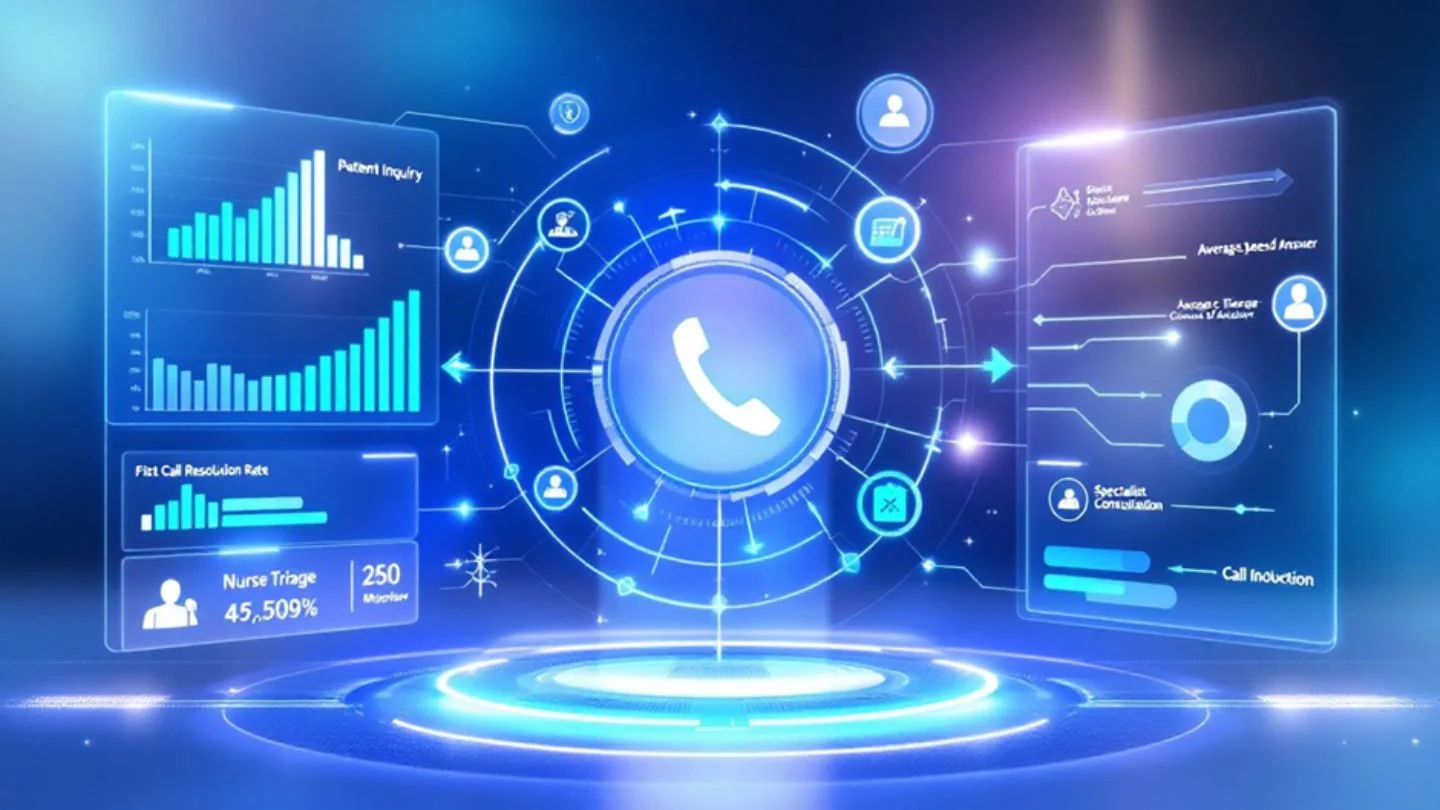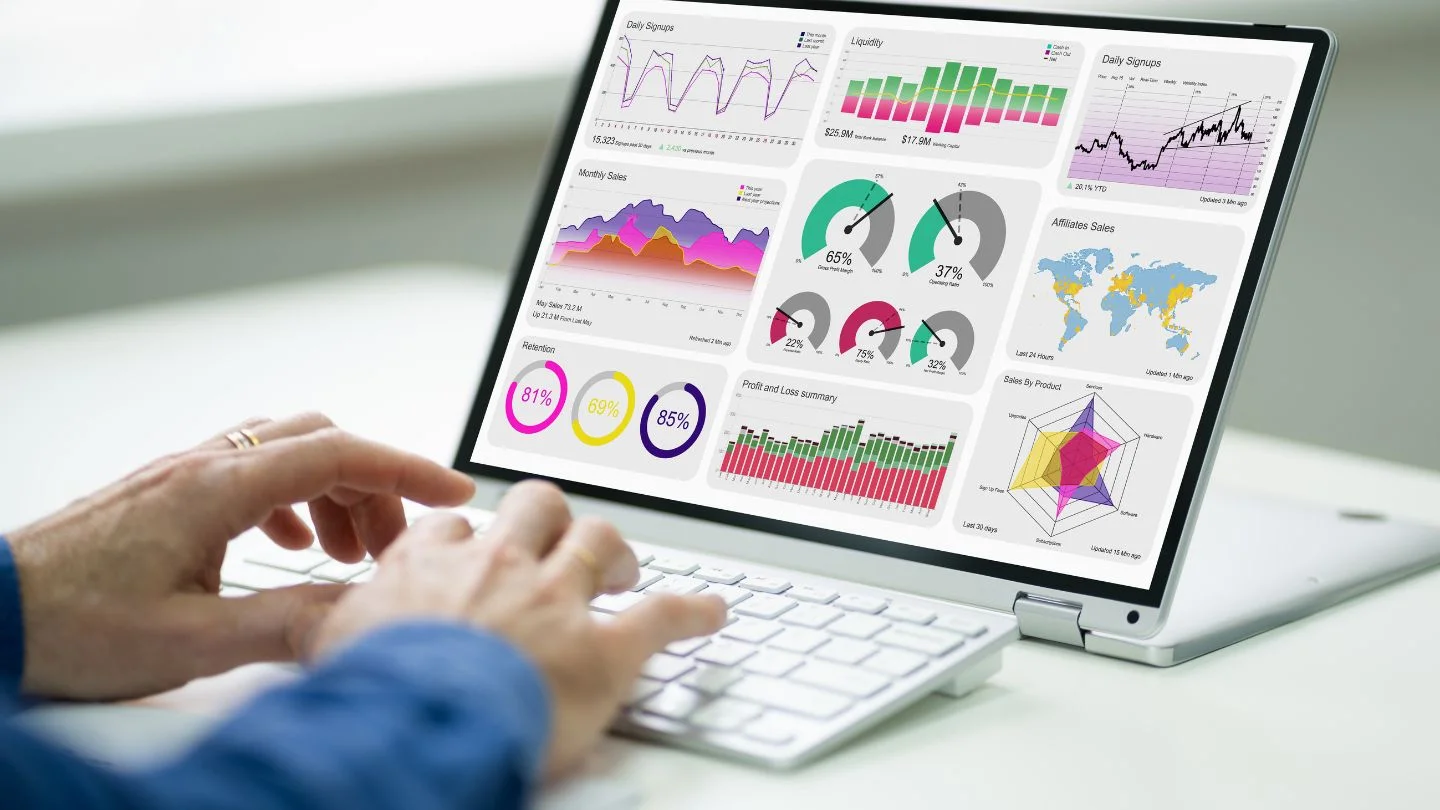Top Strategies for Enhancing Call Routing in Health Call Centers

Effective call routing is vital for health call centers to reduce wait times and improve patient satisfaction. This blog will cover the best strategies for enhancing call routing in health call centers, including the use of intelligent call routing, interactive voice response systems, and data analytics to optimize performance.
Key Takeaways
- Healthcare call centers must implement advanced call routing systems, including intelligent call routing (ICR) and IVR technologies, to enhance operational efficiency and patient satisfaction.
- Regular training and performance monitoring of call center agents are crucial for improving patient outcomes and ensuring empathetic communication during interactions.
- Data analytics is essential for predicting staffing needs and optimizing call center performance while maintaining compliance with HIPAA regulations, which is critical for protecting patient information.
Understanding Call Routing Systems in Healthcare Call Centers
In the healthcare industry, efficient call routing is a fundamental component of healthcare call centers. It facilitates the proper management and allocation of incoming calls to suitable agents or divisions in an expedient manner. The chief aim is to manage patient calls adeptly and swiftly, lessening wait times while boosting overall performance within the call center. By assigning priority levels based on immediacy, these systems greatly advance operational efficiency within such centers.
Efficient call routing mechanisms are pivotal for curtailing patient dissatisfaction by eliminating repeated transfers during their interaction with healthcare services. Advanced algorithms evaluate factors like caller input alongside agent availability, enabling direct routing of callers to appropriate departments or experts—a process that not only elevates service quality but also heightens conversion rates from inquiries into active patients.
Integrating cutting-edge technologies such as artificial intelligence (AI) empowers healthcare organizations’ call centers to more capably handle both communications and data processing tasks. This adoption permits enhanced precision in addressing every aspect of patient care interactions — solidifying exceptional service standards across the board for those reaching out through these vital communication channels.
Implementing Intelligent Call Routing
In the realm of healthcare call centers, intelligent call routing systems represent an evolution from standard routing methods. These advanced systems employ intricate algorithms and immediate data analysis to steer calls based on a variety of factors, including caller history, demographic information, previous interactions with the service, and the specific skill set of available agents. By doing so, these systems expedite connections between patients and appropriately skilled agents, which reduces wait times significantly and elevates patient satisfaction.
A prominent advantage offered by intelligent call routing is its capacity to swiftly match callers with suitable representatives. This capability greatly enhances rates at which issues are resolved upon first contact—a vital metric that contributes not only to improved patient experiences but also serves as a catalyst for heightened efficiency within healthcare call center operations. Diligently tracking performance indicators such as resolution rates on initial contact along with average duration before calls are answered plays a critical role in fine-tuning ICR’s effectiveness.
The adoption of ICR has far-reaching implications for redefining what it means to operate a successful healthcare call center through strategic management informed by rich insights from collected data. Call centers utilizing this technology ensure every encounter with patients is managed adeptly.
Utilizing Interactive Voice Response (IVR) Systems
Interactive Voice Response (IVR) systems are crucial to the functionality of healthcare call centers, offering an automated method for directing calls to the right department or agent efficiently. Utilizing IVR technology enhances promptness in responding to patient inquiries, diminishes wait times, and averts potential frustration.
By accurately channeling calls through real-time input from callers, IVR systems boost the rates at which issues are resolved on first contact. This streamline processes for call center agents by enabling them to dedicate time to more intricate problems, thereby boosting both productivity and service quality. Such systems furnish round-the-clock customer assistance, hence allowing patients access beyond standard operating hours.
Nevertheless, it’s essential to acknowledge that challenges may arise with IVRVRs when users make incorrect selections, leading to unresolved concerns. To counteract this problem within healthcare call centers, advanced IVRs incorporating natural language processing should be employed. These create a simplified interface while delivering a personalized experience, thus enhancing patient interactions significantly.
Optimizing Agent Performance for Better Patient Outcomes
The efficacy of call center agents plays a vital role in improving patient experiences and significantly boosting patient satisfaction levels. Continuous training programs for these agents can enhance their ability to communicate effectively, fostering empathetic interactions with patients. Utilizing sentiment analysis tools helps pinpoint areas where performance improvements are needed, which can then be addressed through specialized training.
By cross-training call center agents to manage diverse types of patient inquiries, the flexibility within the call center is increased, and operations remain fluid during times when calls are at their highest volumes. By keeping an eye on key metrics related to the call center in real-time, supervisors have the opportunity to promptly tackle any operational challenges that arise, ensuring peak agent performance.
When electronic medical records (EMR) systems are seamlessly integrated into call center platforms, agents gain immediate access to detailed patient histories. This integration empowers them to provide tailored care and improves overall communication with patients. Well-executed Interactive Voice Response (IVR) systems contribute positively toward customer satisfaction by curtailing wait times and facilitating faster retrieval of information.
Delegating standard inquiries management tasks over IVR technologies enables focused attention from live agents toward more complicated concerns from customers—this strategy not only amplifies productivity but also advances the caliber of individualized support provided while thoroughly addressing various issues raised by patients.
Enhancing Communication Channels for Superior Service Delivery
In healthcare call centers, the foundation of exceptional service delivery is anchored in clear and effective communication. By incorporating call routing systems into Customer Relationship Management (CRM) platforms, the personalization and efficiency of patient interactions can be significantly improved. This enables center agents to quickly retrieve patient details during calls, allowing for more informed and streamlined conversations.
It’s essential that healthcare call centers provide a variety of communication channels — including email, live chat, and social media — to accommodate different patient preferences. The use of omnichannel solutions ensures consistent interaction with patients across multiple mediums for an integrated experience. Contact center software equipped with real-time collaboration features empowers healthcare professionals to address patient inquiries promptly, thereby elevating the quality of service provided.
Utilizing data analytics is key in deciphering trends concerning patient behavior and preferences, which directly contributes to raising customer satisfaction levels at call centers. Employing this intelligence allows contact centers within the healthcare industry to customize their communication approach, thus effectively catering to individual requirements and offering more targeted and successful service outcomes.
Leveraging Data Analytics for Improved Call Center Performance
Utilizing data analytics can markedly improve healthcare call centers’ efficiency. By observing and assessing trends in call volumes, healthcare organizations are able to forecast their staffing requirements more precisely, ensuring agents are readily available when needed. The application of predictive analytics also permits enhanced allocation of resources and bolsters performance metrics across the board.
Integrating big data analytics presents obstacles such as maintaining high-quality data and equipping staff with necessary skills through training. To address these issues, it is vital for healthcare call centers to establish comprehensive training initiatives and enforce strict protocols for maintaining impeccable data integrity.
Cloud-based platforms provide a flexible and scalable approach that empowers both individual healthcare providers and broader organizations to adapt resource levels in response to shifting demand patterns quickly.
Data analysis doesn’t merely boost operational effectiveness. Also, It plays a critical role in elevating patient contentment. Delving into calling trends along with understanding patient preferences allows health-related contact centers to customize interactions better aligned with what patients seek, thereby significantly enhancing the overall customer experience at every touchpoint within the service journey.
Ensuring HIPAA Compliance in Healthcare Call Centers
It is critical for healthcare call centers to handle sensitive health information in compliance with HIPAA standards, which emphasize the confidentiality and protection of personal health data. To avoid breaches and uphold patient confidence, call center agents should receive consistent training in adhering to these protocols so they can recognize the significance of protecting patient details.
Healthcare organizations must be aware that failure to adhere to HIPAA rules can result in significant penalties, including financial fines, legal action, or even incarceration. It’s vital for them to employ secure communication methods such as HIPAA-compliant VoIP services alongside robust platforms designed specifically for security. This ensures not only the privacy and safety of patient information but also contributes positively toward enhancing overall call center performance by meeting compliance requirements using reliable technology solutions that are expandable.
By maintaining strict adherence to HIPAA mandates and implementing robust security safeguards, healthcare contact centers foster trust among their patients and business associates while bolstering their own credibility. Such dedication guarantees exceptional levels of care through an improved reputation facilitated by sustained commitment towards stringent operational practices within the call center domain.
Choosing the Right Contact Center Solution
It’s imperative for healthcare call centers to adopt an appropriate contact center solution that aligns with their operational demands. Healthcare call centers must navigate the intricacies of handling sensitive patient data while managing a substantial volume of calls, making it necessary to employ software solutions designed for such complexities, including HIPAA-compliant VoIP technologies, sophisticated call routing systems, and in-depth data analytics tools aimed at refining healthcare call center functionality.
For these specialized needs within healthcare organizations, adherence measures like encrypting data transmissions, securely storing information, and providing comprehensive HIPAA training are crucial components. Many health-focused establishments lean towards utilizing phone services that are compliant with HIPAA regulations to guarantee secure exchanges between patients and staff while preserving trust among them. Determining your specific organizational requirements is vital when deciding on which contact center option will fit seamlessly into existing operations tasks. A third-party service provider who complies with all relevant regulations can assist in effortlessly upholding compliance standards alongside elevating the caliber of customer care delivered by healthcare organizations. Opting for an apt contact center solution paves the way toward proficient management of incoming calls, which consequentially uplifts patient contentment level, bolstering overall efficiency pertaining to call center performance metrics.
To Conclude
In summary, enhancing call routing in healthcare call centers involves implementing intelligent call routing, utilizing IVR systems, optimizing agent performance, and leveraging data analytics. Ensuring HIPAA compliance and choosing the right contact center solution are also critical components of a successful healthcare call center. By adopting these strategies, healthcare organizations can improve patient satisfaction and operational efficiency.
At Sequence Health, we are dedicated to helping healthcare providers create exceptional patient experiences through advanced healthcare call center solutions. Our healthcare call centers are designed to result in more meaningful, successful, and profitable patient interactions, ultimately growing and sustaining healthcare businesses. Reach out to us today to learn more about our customizable and HIPAA-compliant healthcare call center solutions.
Frequently Asked Questions
Why is efficient call routing important in healthcare call centers?
Efficient call routing plays a vital role in reducing wait times and directing patient calls to the appropriate department quickly, which ultimately improves overall patient satisfaction.
What is Intelligent Call Routing (ICR)?
Using advanced algorithms and real-time data analytics, Intelligent Call Routing (ICR) strategically allocates calls based on various considerations such as caller demographics, past interactions, and the skill level of agents.
By ensuring that callers are matched with the most appropriate agents, this system improves operational efficiency and boosts customer satisfaction.
How do IVR systems benefit healthcare call centers?
IVR systems significantly benefit healthcare call centers by reducing wait times, increasing first-call resolution rates, and providing around-the-clock access to customer service.
This leads to improved overall call center performance.
What steps can healthcare call centers take to ensure HIPAA compliance?
To ensure HIPAA compliance, healthcare call centers must utilize secure, HIPAA-compliant platforms, provide thorough training for agents on HIPAA regulations, and implement robust data encryption and secure storage measures.
These actions are essential to protect patient information and maintain regulatory adherence.










